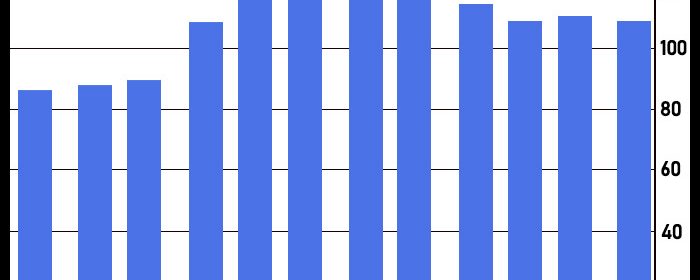U.S. Consumer Confidence Dips Amid Concerns About Rising Prices

After reporting an unexpected improvement in U.S. consumer confidence in the previous month, the Conference Board released a report on Tuesday showing consumer confidence deteriorated in the month of November.
The Conference Board said its consumer confidence index fell to 109.5 in November from a downwardly revised 111.6 in October. Economists had expected the index to dip to 110.7 from the 113.8 originally reported for the previous month.
“Concerns about rising prices—and, to a lesser degree, the Delta variant—were the primary drivers of the slight decline in confidence,” said Lynn Franco, Senior Director of Economic Indicators at The Conference Board.
Consumers’ appraisal of current business conditions was less favorable, with the present situation index falling to 142.5 in November from 145.5 in October.
Seventeen percent of consumers said business conditions are “good,” down from 18.3 percent last month, while the percentage of consumers saying conditions are “bad” rose to 29.0 percent from 25.7 percent.
Meanwhile, consumers’ assessment of the labor market was moderately more favorable, as consumers saying jobs are “plentiful” climbed to 58.0 percent from 54.8 percent and consumers saying jobs are “hard to get” was virtually unchanged at 11.1 percent.
The report said the expectations index edged down to 87.6 in November from 89.0 in October, as optimism about short-term business conditions increased but job and income prospects ticked down.
The percentage of consumers expecting business conditions will improve rose to 24.1 percent from 22.7 percent, while the percentage expecting conditions to worsen dipped to 20.7 percent from 21.9 percent.
At the same time, consumers expecting more jobs to be available in the months ahead slipped to 22.1 percent from 24.4 percent and consumers expecting fewer jobs inched up to 18.9 percent from 18.7 percent.
MNI Indicators said consumers were also less positive about their short-term financial prospects, as consumers expecting their incomes to increase edged down to 17.9 percent from 18.4 percent and those expecting their incomes to decrease crept up to 12.0 percent from 11.2 percent.
“The Conference Board expects this to be a good holiday season for retailers and confidence levels suggest the economic expansion will continue into early 2022,” Franco said.
She added, “However, both confidence and spending will likely face headwinds from rising prices and a potential resurgence of COVID-19 in the coming months.”
Last Wednesday, the University of Michigan released a separate report showing consumer sentiment in the U.S. decreased by slightly less than initially estimated in the month of November.
The report said the consumer sentiment index for November was upwardly revised to 67.4 from the preliminary reading of 66.8. Economists had expected the index to be upwardly revised to 66.9.
Despite the upward revision, the consumer sentiment index was down from 71.7 in October and was still at its lowest level since hitting 63.7 in November of 2011.
Source: Read Full Article
